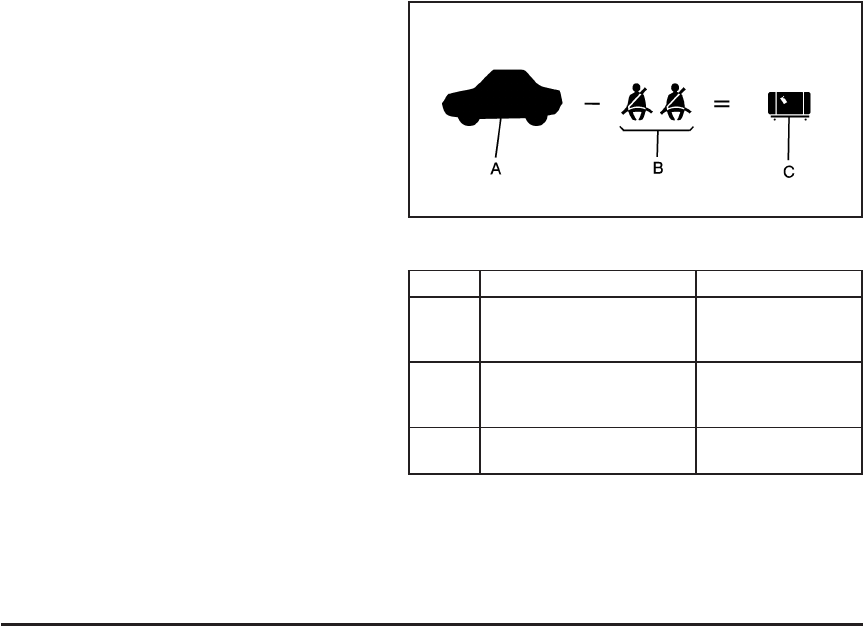
4. The resulting figure equals the available
amount of cargo and luggage load capacity.
For example, if the “XXX” amount equals
1400 lbs and there will be five 150 lb
passengers in your vehicle, the amount of
available cargo and luggage load capacity is
650 lbs (1400 − 750 (5 x 150) = 650 lbs).
5. Determine the combined weight of luggage
and cargo being loaded on the vehicle. That
weight may not safely exceed the available
cargo and luggage load capacity calculated in
Step 4.
6. If your vehicle will be towing a trailer, the load
from your trailer will be transferred to your
vehicle. Consult this manual to determine how
this reduces the available cargo and luggage
load capacity of your vehicle.
See Towing a Trailer (Vehicles With Heavy
Duty Cooling) on page 4-34 or Towing a Trailer
(Vehicles Without Heavy Duty Cooling) on
page 4-40 for important information on towing a
trailer, towing safety rules and trailering tips.
Item Description Total
A
Vehicle Capacity
Weight for
Example 1 =
1,000 lbs
(453 kg)
B
Subtract Occupant
Weight 150 lbs
(68 kg) × 2 =
300 lbs (136 kg)
C
Available Occupant
and Cargo Weight =
700 lbs (317 kg)
Example 1
4-28


















